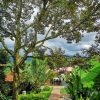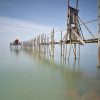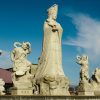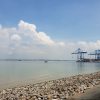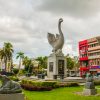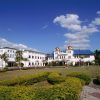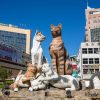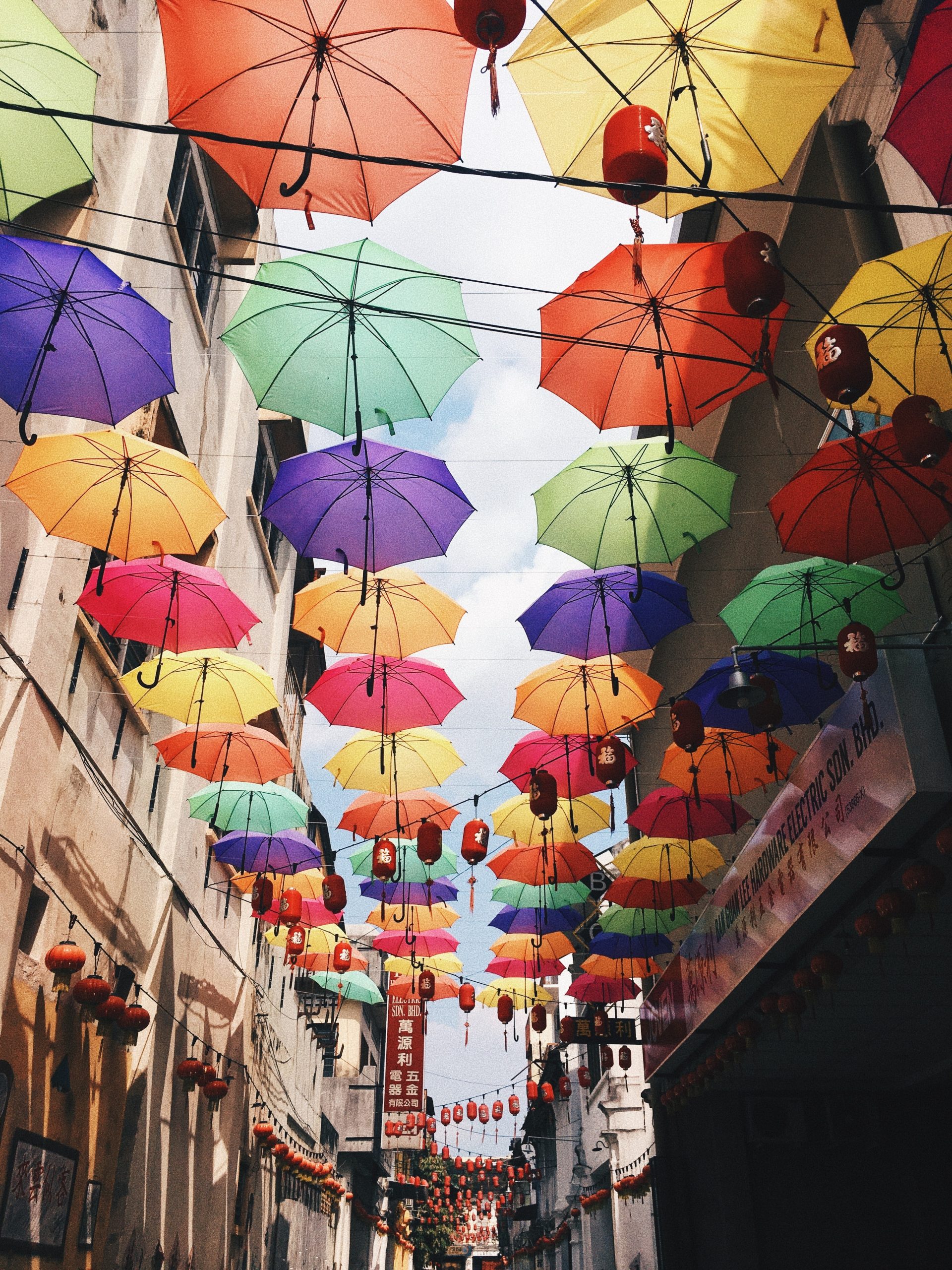
The Story of Great Grandfather Chin Choon Sam and a Mosque
Published on June 21, 2015 | by chinyoke.blog
There is a road in the Greentown area of Ipoh, Malaysia, which is named after my maternal great grandfather Chin Choon Sam. He was the husband of the woman who inspired my first novel.
Chin Choon Sam was also the father of (among others) the late Chin Kee Onn. Chin Kee Onn in turn was the author of Malaysian classics such as Malaya Upside Down – the first non-fictional account of life in Malaya under Japanese occupation (from December 1941 through September 1945) and Twilight of the Nyonyas – a fictional tale of a Nyonya family in the early twentieth century, a period of decline for this mixed-race community (of which more below).
Not much is known about Chin Choon Sam other than that he was an educated man who came from a Hakka village in southern China. Great Grandfather arrived in Malaya at some point towards the end of the nineteenth century and apparently set himself up as a roving accountant to Ipoh’s first entrepreneurs. He didn’t become a millionaire but he did well for himself, so well that he decided to settle in Malaya.
By all accounts, my great grandfather loved his adopted home. He already had a wife in China, but Chinese immigration policy was such that women were not allowed to leave the country in the same numbers as men. In order to put roots down in Malaya, Chin Choon Sam took a local woman as his second wife. He chose a woman from the mixed-race Nyonya community who was shrewd, blessed with a fiery tongue and who delighted in feeding him eye-watering, spicy dishes.
Who exactly were the Nyonyas? Unfortunately, many people today, even in Malaysia, don’t know the answer. This is in large part because the Nyonyas (and their male counterparts, the Babas) do not fit into the political narrative which the Malaysian government and its ultra-zealous supporters would like us to espouse. The dominant narrative in today’s Malaysia holds that the country was “first” inhabited by the Malay people who, by dint of having arrived “first”, deserve “special privileges” – first priority in the civil service, education, public scholarships, land purchases and financial hand-outs. Protection for the rights of this privileged class is enshrined in the country’s Constitution (which incidentally, was generously agreed by our wonderful British rulers prior to their departure).
Moreover, because the Malays converted to Islam sometime between the twelfth and the fifteenth century – a religion brought by traders from India and the Middle-East – it necessarily follows that all Malays born today in Malaysia are Muslim. It must be so, how could they possibly be anything else?
There are some who would like us to believe that it has always been this way in Malaysia: that every person of Malay descent has been incontrovertibly a Muslim since the twelfth century.
Alas, the Nyonyas are thorns in the above narrative. Here were local Malay women marrying immigrants from China and then proceeding to adopt some of their husbands’ customs, including, crucially, their religion. Instead of practising Islam, the Nyonyas adopted Buddhist-Taoism.
Worse, Nyonya and Baba communities were established along the coastal parts of Malaya from the fifteenth century onwards. In other words, a sizable Chinese community began settling in Malaya six hundred years ago – a very long time ago by anyone’s standards. If it were not so, Nyonyas and Babas would never have come into being.
The existence of Nyonyas and Babas is rather inconvenient. Should their descendants (people like me) not also deserve “special privileges”? For how many generations do your forbears need to have been around before you enjoyed such privilege? This question is best avoided, otherwise Malaysia’s racial policies would be shown up for the poisonous, antiquated trash they are.
Therefore, instead of celebrating an interesting part of our heritage, the Malaysian government chooses to ignore it. Evidently, parts of Malaysia’s history cannot be publicised – it would give the citizens ideas. The Nyonyas and Babas point to a time (not even that long ago) when Malaysia was actually liberal, when the Department for Islamic Development (JAKIM) did not exist and there were no officials lurking to poke their noses into people’s daily lives.
It was in that age that Chin Choon Sam married a woman from the Nyonya community. They had nine children together: three girls and six boys. To cement his position in Malaya, Great Grandfather invested in seven plots of land in Ipoh, my family’s hometown. He would have bought them sometime in the first decade of the twentieth century, when Ipoh comprised barely more than a few streets.
Of all the places in Ipoh, Chin Choon Sam chose to buy his land in Greentown. Greentown then was not the thriving metropolis it is today. It was actually a bit of a wilderness – far from town, full of rubber estates and mosquitoes. To say that Greentown had uncertain prospects would have been generous. Most people must have thought Great Grandfather mad or very foolish, which is why he probably acquired his seven plots for a song.
Why only seven plots, you may ask, when he had nine children? Because my great grandfather, as typical of any Chinese man of the time, was thinking only of his sons. Each son would need to build his own house, while it was assumed that his daughters would marry and be provided for by their husbands.
But there was one extra plot. This, Chin Choon Sam donated to the Malay community specifically so that they could build a mosque. The only mosque in the area is the Masjid Muhibbuddin Shah (Masjid meaning Mosque in Malay) on Jalan Abdul Jalil. It’s close to where my family used to live and is very likely to have been built on Great Grandfather’s seventh plot. In those days, gestures of friendship between non-Muslims and Muslims were uncontroversial. My great grandfather’s donation was welcomed and a little road in Greentown was named after him.
Contrast that with what happened in Malaysia last week, when plans by the Democratic Action Party (DAP), an opposition party, to build a mosque, were condemned as an “insult” to Muslims because funds for building mosques had to be “halal”. The DAP, despite having Muslim members, is conveniently branded a political party of and for Malaysian-Chinese, who are of course not halal.
My great grandfather’s desire to pay homage to his adopted country was natural and highly laudable but I wonder: would his gift have been accepted now? In the sorry state that is today’s Malaysia, I suspect not.
To Malaysian Readers: I do know that Article 153 of Malaysia’s Constitution safeguards the position not of Malays per se but of “Bumiputras“. The definition of Bumiputra – a Prince of the Soil, a protected class of person in Malaysia – is convoluted though, and not relevant to this blog-post. Article 153 is a minefield in Malaysian politics which would require separate discussion.
More stories
>>> 10 Malaysian football legends we need to remember
>>> The royal town of Kuala Kangsar
>>> History Of Cameron Highlands
>>> Forgotten Perak town was backdrop of Sybil Kathigasu’s heroism
>>> Town that grew from a tin tycoon’s mansion
>>> 7 Hollywood Movies Filmed in Malaysia
>>> Ipoh’s Concubine Lane draws foodies and tourists
>>> There’s a small, charming town near Ipoh that’s rich in biodiversity
>>> Hakka Villa To Reveal Revelational Past
>>> Ipoh Echo Readers’ Choice: Top 5 Ipoh Curry Mee
>>> Royal Belum Welcomes 10 Different Hornbill Species
>>> Ipoh Echo Reader’s Choice: Top 5 Kai Si Hor Fun In Ipoh
>>> Nostalgia: One Man’s Rubbish Is Another Man’s Collectable
>>> Han Chin Pet Soo
>>> 10 things about: Ruth Iversen Rollitt, an Ipoh girl at heart
>>> Nostalgia: Yeoh Ghim Khoon, Transport Entrepreneur
>>> ‘Ipoh Echo’: A community newspaper that has lasted 12 years and counting
>>> Arlene Terrace
>>> Arlene House (Chung Thye Phin Building)
>>> Kilang kopi Antong masih menggunakan kaedah tradisional untuk pengeluaran kopinya
![ipoh_on_malaysian_map1[1]](https://chinyoke.files.wordpress.com/2012/07/ipoh_on_malaysian_map11.png?w=500)

